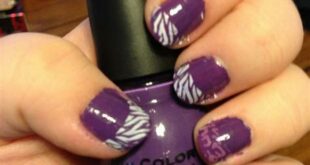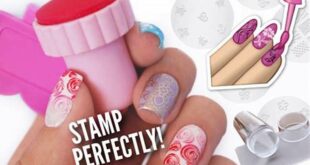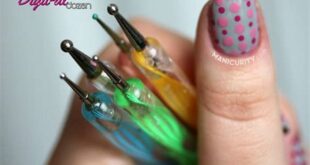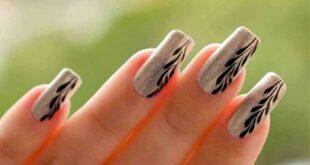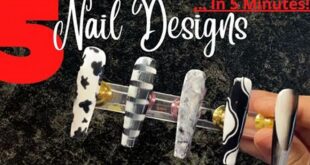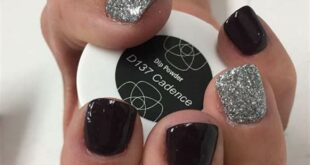Water nail art is a fun and easy way to add some personality to your nails. It’s a great way to experiment with different colors and patterns, and it can be customized to suit any taste. If you’re new to water nail art, don’t worry – it’s easier than it looks!
Editor’s Notes: “How to do water nail art” has published today date”. Given the popularity of nail art, it’s no wonder this topic is important to read.
To help you get started, we’ve put together this how-to guide. We’ll cover everything you need to know, from the materials you’ll need to the step-by-step instructions. So what are you waiting for? Let’s get started!
Key differences or Key takeaways, provide in informative table format
Transition to main article topics
How to do water nail art
Water nail art is a fun and easy way to add some personality to your nails. It’s a great way to experiment with different colors and patterns, and it can be customized to suit any taste. If you’re new to water nail art, don’t worry – it’s easier than it looks!
- Materials: You’ll need a few basic materials to get started with water nail art, including a bowl of water, some nail polish, and a toothpick or dotting tool.
- Colors: You can use any color of nail polish you like for water nail art, but lighter colors tend to work best.
- Patterns: There are endless possibilities when it comes to creating patterns with water nail art. You can create simple stripes, polka dots, or even more complex designs.
- Customization: Water nail art is a great way to express your own personal style. You can use your favorite colors, patterns, and even add glitter or other embellishments to create a look that’s uniquely you.
- Easy to remove: Water nail art is also very easy to remove. Simply peel off the polish when you’re ready for a change.
Detailed discussion on the key aspects, through examples, connections, or linkage to the main topic:
Water nail art is a great way to add some fun and personality to your nails. It’s a versatile technique that can be used to create a variety of different looks, from simple stripes and polka dots to more complex designs. Water nail art is also a great way to use up leftover nail polish, and it’s a great activity to do with friends.
If you’re new to water nail art, don’t worry – it’s easier than it looks! With a little practice, you’ll be able to create beautiful water nail art designs in no time.
Materials
When it comes to water nail art, the materials you use play a crucial role in achieving the desired results. Let’s explore the connection between these materials and the art of water nail art:
- Water: Water is the foundation of water nail art. It creates a surface tension that allows the nail polish to spread and form patterns. The depth of the water and its temperature can affect the size and shape of the patterns.
- Nail Polish: The type of nail polish you use will also impact the outcome of your water nail art. Lighter colors tend to work best for creating intricate designs, while darker colors may be more suitable for simpler patterns.
- Toothpick or Dotting Tool: These tools are used to create the designs in the water. A toothpick can be used to create thin lines and dots, while a dotting tool can be used to create larger dots and circles.
By understanding the connection between these materials and the art of water nail art, you can experiment with different combinations to create unique and beautiful designs.
Colors
In water nail art, the choice of colors plays a crucial role in achieving the desired effects and patterns. Understanding the connection between colors and water nail art techniques is essential for creating visually appealing designs.
Lighter colors are generally preferred for water nail art because they tend to spread more easily on the water’s surface, allowing for more intricate and detailed patterns. Darker colors, on the other hand, may create bolder and more opaque designs, but they may not spread as evenly, making it more challenging to create intricate patterns.
By choosing lighter colors, artists can create delicate and subtle patterns, such as thin lines, dots, and swirls. These colors allow for greater control and precision, enabling the creation of intricate and elegant designs.
Additionally, lighter colors reflect light better, creating a more vibrant and eye-catching effect. They are particularly effective in creating designs with multiple colors, as they allow each color to stand out and blend seamlessly.
While darker colors can be used for bolder and more dramatic effects, they may require more practice and skill to achieve precise and controlled patterns. However, when used effectively, darker colors can add depth and contrast to water nail art designs.
Patterns
In water nail art, patterns play a vital role in creating visually appealing and unique designs. The connection between patterns and the overall technique of water nail art is multifaceted and significant.
Patterns are essentially the visual arrangements and combinations of colors and shapes that form the designs on the nails. In water nail art, the patterns are created by carefully placing drops of nail polish onto the water’s surface and manipulating them to form desired effects. The patterns can range from simple stripes and polka dots to intricate swirls, gradients, and abstract designs.
The endless possibilities for creating patterns in water nail art stem from the fluid nature of the water medium. When nail polish is dropped onto the water’s surface, it spreads and forms thin films, creating unique patterns based on factors such as the type of nail polish, the water’s temperature, and the movement of the water.
Understanding the connection between patterns and water nail art is crucial for creating successful designs. By experimenting with different techniques and combinations of colors, artists can create patterns that are both visually appealing and technically well-executed.
Customization
Introduction: Water nail art is a fantastic technique that allows you to unleash your creativity and showcase your individuality. By customizing your water nail art designs, you can create a unique look that reflects your personal style and preferences.
-
Facet 1: Color Exploration
Color plays a crucial role in water nail art customization. You can experiment with a wide range of colors, from vibrant and bold hues to soft and pastel shades. By combining different colors, you can create eye-catching patterns and gradients that reflect your personality.
-
Facet 2: Pattern Possibilities
The patterns you choose are another essential aspect of customization in water nail art. From classic stripes and polka dots to intricate swirls and abstract designs, the possibilities are endless. By manipulating the water’s surface and experimenting with different techniques, you can create unique patterns that express your creativity.
-
Facet 3: Embellishment Enhancements
To further personalize your water nail art, you can add various embellishments, such as glitter, rhinestones, or studs. These embellishments can add a touch of sparkle, glamour, or sophistication to your designs, making them even more captivating.
-
Facet 4: Personal Style Reflection
Ultimately, the goal of customization in water nail art is to create a look that reflects your own personal style. Whether you prefer minimalist designs, bold patterns, or intricate embellishments, water nail art empowers you to express your individuality through your fingertips.
Conclusion: Water nail art customization is a journey of self-expression and creativity. By exploring different colors, patterns, and embellishments, you can create unique designs that showcase your personality and make a statement. Embrace the limitless possibilities of water nail art and let your imagination soar.
Easy to remove
Introduction: In the realm of nail art, the ease of removal plays a significant role in determining the practicality and appeal of a technique. Water nail art stands out in this regard, as it offers a convenient and effortless removal process that enhances its overall desirability.
-
Facet 1: Non-damaging Removal
Unlike traditional nail polish, which requires harsh removers that can damage the nail bed, water nail art can be peeled off without causing any harm to the nails. This gentle removal process preserves the health and integrity of your nails, allowing you to experiment with different designs without compromising their well-being.
-
Facet 2: Time-saving Convenience
Water nail art eliminates the need for lengthy soaking or scrubbing to remove the polish. Simply peeling off the dried design reveals your natural nails in an instant. This time-saving convenience makes water nail art an ideal choice for busy individuals who want to maintain stylish nails without investing excessive time in the removal process.
-
Facet 3: Versatility in Design Changes
The easy removal of water nail art empowers you to change your nail designs frequently, adapting to different occasions, moods, or trends. Whether you’re seeking a bold look for a special event or a more subtle design for everyday wear, water nail art provides the flexibility to switch up your nail art effortlessly.
Conclusion: The ease of removal is an integral aspect of water nail art’s appeal. Its non-damaging, time-saving, and versatile nature makes it an accessible and enjoyable technique for nail art enthusiasts of all levels. By understanding these facets, you can fully appreciate the benefits of water nail art and incorporate it into your beauty routine with confidence.
FAQs on Water Nail Art
Question 1: What is water nail art?
Answer: Water nail art is a technique that involves creating patterns and designs on your nails using water as a medium. It is a creative and fun way to add a personal touch to your manicure.
Question 2: What materials do I need for water nail art?
Answer: To get started with water nail art, you will need a bowl of water, several colors of nail polish, a toothpick or dotting tool, and a base and top coat.
Question 3: How do I create a water nail art design?
Answer: The process of water nail art involves dropping nail polish onto the surface of water, creating patterns by swirling the colors together, and then dipping your nails into the water to transfer the design.
Question 4: What are some tips for successful water nail art?
Answer: To achieve the best results with water nail art, it is important to use room-temperature water, apply a thin layer of base coat before starting, and seal the design with a top coat once it is dry.
Question 5: How do I remove water nail art?
Answer: Removing water nail art is easy. Simply peel off the dried design from your nails. You can use a cuticle pusher or tweezers to assist with the removal.
Question 6: What are the benefits of water nail art?
Answer: Water nail art is a versatile technique that allows for endless creativity and customization. It is easy to learn, affordable, and gentle on your nails.
Summary: Water nail art is a fun and easy way to add some personality to your nails. It’s a great way to experiment with different colors and patterns, and it can be customized to suit any taste. If you’re new to water nail art, don’t worry – it’s easier than it looks! With a little practice, you’ll be able to create beautiful water nail art designs in no time.
Transition to the next article section: If you’re looking for more inspiration for your water nail art designs, check out our gallery of beautiful water nail art ideas.
Water Nail Art Tips
Water nail art is a fun and easy way to add some personality to your nails. It’s a great way to experiment with different colors and patterns, and it can be customized to suit any taste. If you’re new to water nail art, don’t worry – it’s easier than it looks! With a little practice, you’ll be able to create beautiful water nail art designs in no time.
Tip 1: Use room-temperature water.
If the water is too hot, the nail polish will spread too quickly and the design will be difficult to control. If the water is too cold, the nail polish will not spread evenly.
Tip 2: Apply a thin layer of base coat before starting.
This will help the nail polish adhere to your nails and prevent it from peeling off.
Tip 3: Drop the nail polish onto the surface of the water, not into the water.
If you drop the nail polish into the water, it will sink to the bottom and the design will be ruined.
Tip 4: Swirl the colors together gently.
If you swirl the colors together too vigorously, the design will become muddy.
Tip 5: Dip your nails into the water at an angle.
This will help to prevent the design from smudging.
Tip 6: Seal the design with a top coat once it is dry.
This will help to protect the design and make it last longer.
Summary: Water nail art is a fun and easy way to add some personality to your nails. It’s a great way to experiment with different colors and patterns, and it can be customized to suit any taste. With a little practice, you’ll be able to create beautiful water nail art designs in no time.
Transition to the article’s conclusion: If you’re looking for more inspiration for your water nail art designs, check out our gallery of beautiful water nail art ideas.
Conclusion
Water nail art is a fun and easy way to add some personality to your nails. It’s a great way to experiment with different colors and patterns, and it can be customized to suit any taste. With a little practice, you’ll be able to create beautiful water nail art designs in no time.
Water nail art is a versatile technique that can be used to create a variety of different looks, from simple stripes and polka dots to more complex designs. It’s also a great way to use up leftover nail polish, and it’s a great activity to do with friends.
So what are you waiting for? Give water nail art a try today!
